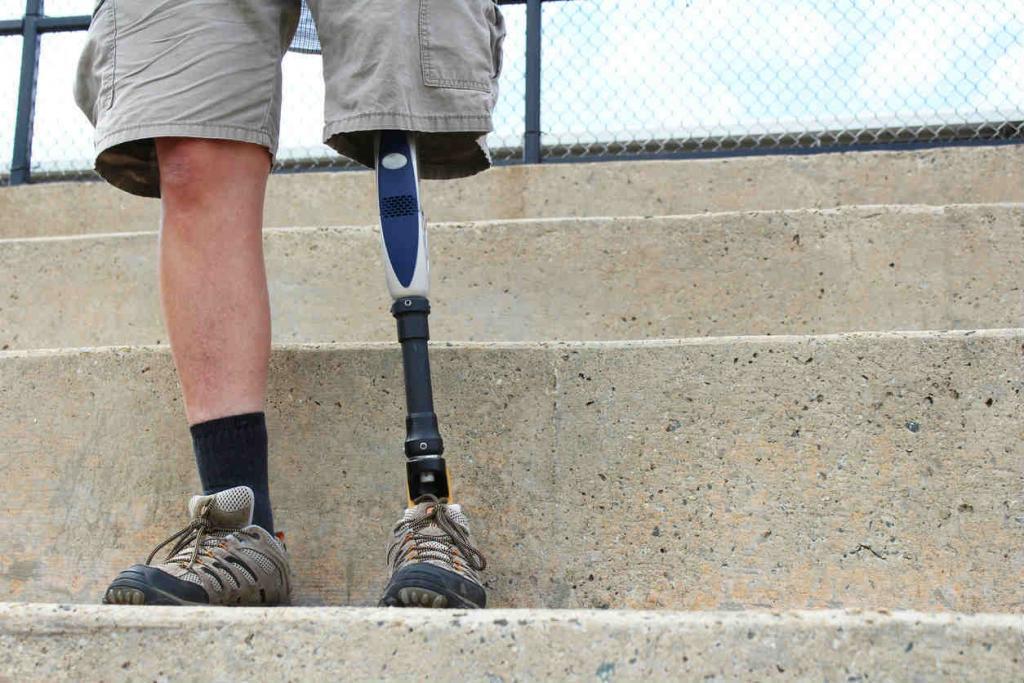One of the most devastating injuries that can occur in a car accident is amputation. The loss of a limb can lead to a condition known as phantom limb pain.

With the recent explosion of car safety technologies, one would think that car accidents would be on the decline. Unfortunately, U.S. roadways are still plagued by many accidents, many of which result in severe injuries.
One of the most devastating injuries that can occur in a car accident is amputation. While advances in medical care have made it possible to save the lives of many amputees, the loss of a limb can lead to a condition known as phantom limb pain.
In this article, we will answer two questions: What is phantom limb pain? And how common is it after a car accident?
What is Phantom Limb Pain?
Phantom Limb Pain, or PLP, is a post-amputation phenomenon characterized by the sensation of pain in the missing limb. The pain may be burning, shooting, aching, or cramping and can range from mild to severe. The pain can also be intermittent or constant.
Unfortunately, there is no known cure for this post-amputation phenomenon, but there are treatments that can help to reduce the intensity of the pain. These treatments include medication, physical therapy, and massage. In some cases, electrical stimulation or acupuncture may also provide relief.
Other Types of Phantom Pain/Sensations
In addition to Phantom Limb Pain, other types of phantom pain/sensations can affect amputees. These include:
- Stump Pain: a phenomenon that is often experienced as a burning or tingling sensation in the area where the limb was removed.
- Phantom limb sensation is another common occurrence and refers to the feeling that the amputated limb is still attached to the body.
Both of these conditions can be extremely debilitating, and it can be difficult to find effective treatments.
How Common Is Phantom Limb Pain After a Car Accident-Related Amputation?
Unfortunately, there is no simple answer to this question as it depends on several factors, including:
- Age: Older patients are more likely to experience PLP after an amputation. This is because the nervous system deteriorates with age, which can lead to more misfiring of nerve signals.
- Comorbidities: Other conditions, such as diabetes, can also increase the likelihood of phantom limb pain. This is because comorbidities can damage the nervous system, which can lead to more misfiring of nerve signals.
- The amount of Pre-amputation pain you experienced: If you had a lot of pain before your amputation, you’re more likely to experience phantom limb pain afterward.
- Type of amputation: Phantom limb pain is also more likely in patients who have lost their upper extremities, such as their arm or hand. This is because the hands and arms are more sensitive than other body parts.
St. Louis Car Accident Lawyer
If you or a loved one have suffered a car accident-related amputation, contact the experienced St. Louis car accident lawyers at The Hoffmann Law Firm. Working with our experienced car accident attorneys can make all the difference in getting the compensation you deserve.
Why Choose Us vs TV Lawyers?
Direct Attorney Access
Maximum Settlement Focus
Trial-Ready Cases
Paralegal Handling
Quick Settlement Push
Settlement-Only Focus
Free Consultation with a St. Louis Car Accident Lawyer
Don’t talk to an insurance claims adjuster before speaking with The Hoffmann Law Firm, L.L.C. We can help you avoid making statements that may affect the outcome of your case. The consultation is free; you don’t pay unless we get you money!
